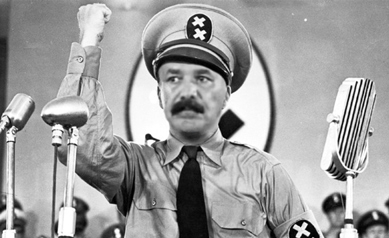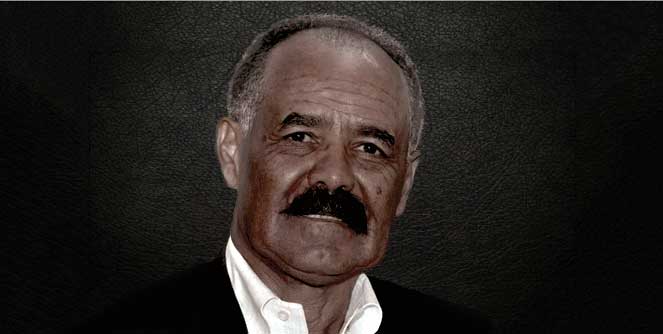The Professor
I am not trying to introduce Dr. Bereket Habte Selassie to any one for he needs no introduction, but I want to give you an account of a man who was humble enough to take time to see me as an ordinary Eritrean and as an admirer. So please allow me through my interaction with him to elevate our academic treasures like the professor, who are being vilified in this new blind medieval like culture where “soldiers” are elevated and educators are downgraded. I believe we need a new awakening in Eritrea, where knowledge sets the path to the future.
I first met Professor Bereket in East Lansing Michigan while I was a student at Michigan State University in 1990. He was headlining Eritrean scholars that included the elite minds of our independence struggle in a major North East Africa Conference which then was being held yearly. Eritrea was at a brink of independence after the decisive victory at Massawa. The Professor’s presentation was confidant and brush. He defended Eritrea’s right to self determination with rigor to the Ethiopian academics and their allies who were still arguing the archaic notion of one Ethiopia. As a very young Eritrean, I was in awe of the man. I was intimidated by his mastery of argument and his grasp of knowledge. I believe now that his character was honed by all those years of defending our cause not only as scholar but as E.P.L.F’s representative to the United Nations. The professor later told me that he drove every Wednesday to New York for years from Washington D.C. to lobby the powers to be. He was then a professor at Howard University. He had to debate the nay Sayers who believed in the hegemony of Ethiopia, so he learned not to compromise or give in.
The next time I saw him was again in the same place, but this time conditions were different. In 1992 we were no longer asking for the world to hear us but we were equal with the rest of them since our seat on the table of nations was secured; we were free. This time Dr. Bereket’s tone was no longer fierce but diplomatic. He wanted peace and reconciliation among our neighbors. He wanted a peaceful future for the Horn of Africa as a whole. He was scholarly and patient to the opposing still archaic ideology of one Ethiopia. Adorn with independence, along with him our scholars saw it unnecessary to waste time with the already settled paradigm. They moved on to the future; how do we build a viable Eritrea and a stable neighborhood. I will leave it to history to judge their contribution and scholarly work of blue printing our future that is being ignored to this day. They are now being quieted but their work is archived for those who want to see it now or in the future. To get back to my story, I have not had a chance of spending time with the professor since then, until this December. I have kept up with his accolades and read his books, but until I met him and had lunch with him I did not fully understand how much of a treasure this man really is.
Now is December 2014, twenty three years since independence and since a “Shakespearean” level tragedy befall Eritrea and her President: I sat with the distinguished professor face to face over a flounder plate ala Dixie for informal chatting. By the way the Doctor used the term Shakespearean not me thus in quotation. We mainly chatted of life but inevitably when two Eritreans talk the subject of our beloved land always comes up. Pro or con we all have opinions. The professor was very consoling and somber at the present state of affairs. He was sad about the disintegration of our unity and our dreams. Eritrea was not supposed to be known for misery he lamented. Even his past admiration of the heroic leader that he knew who was gifted with organization and self sacrifice is now turned to a sorrowful sense of betrayal of our holy cause thus the term Shakespearian tragedy. I immediately thought of King Lear who went mad after thinking that he was betrayed by his daughters. The Doctor was quite after I offered the analogy in an Eritrean style of self lamentation so I try to lighten his mood by referring to the nostalgia of the past, but I could see the pain still lingered in his face. In my head I recited King Lear’s words pretending to be The PIA while the Doc sipped his coffee “O! Let me not be mad, not mad, sweet heaven, keep me in temper; I would not be mad”.
O! The Professor is not without hope because he has seen us triumph before, but now that his age is advanced he can only advice us and not take the front as he did before. He wants us to unite and not let our diversity be a hindrance. Our unity should be through “mutual recognition” as he wrote in an essay being published this year. (While Waiting or Working For Change…… things to do and penalties to avoid in Eritrea, the Red Sea Press) In his writing, he advices us, “let a hundred school of thought contend; let there be a multiplicity of parties”. It is not my attempt to elevate this man because history will definitely raise him to the apex of Eritrean Collage of Thoughts like that of Plato of the Greeks, but to make an argument for the return of scholarship in Eritrea. We are walking blind, if we think arms will save us. We should follow the example of the Greeks as both soldiers and scholars did learn from the teachers and the elders as Aristotle and Alexander did at the foot of Plato.
King Lear like our demigod president lost his way and I imagine he is asking those who close to him, “who is it that can tell me who I am”. Soon he will be facing death crying, “…but I am bound upon a wheel of fire, that mine own tears do scald like molten lead”, then where do we go? It behooves us to listen to our elders and scholars like Dr. Bereket, if we are to avoid a second tragedy.



Awate Forum